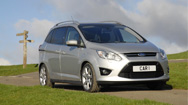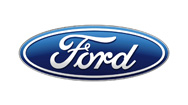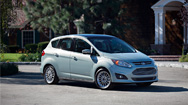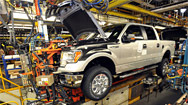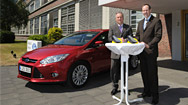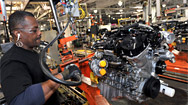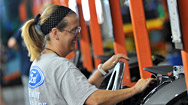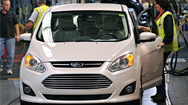Understanding Customer Needs
We must keep pace with consumers’ evolving wants and needs in order to remain competitive. We monitor global market trends, shifting consumer interests, and social and political developments to identify issues that are likely to affect our consumers, our industry and our Company. We rely on a global network of internal and external experts to ensure that we have a wide-ranging, comprehensive perspective on consumer trends and how they will affect consumers’ future choices about vehicles and mobility. We apply these trend analyses throughout our marketing, product development, research and design organizations to guide future product and technology developments.
Our marketing experts use an intensive research and analysis process to understand who our potential customers are, what they value and what they want in a vehicle. We define a “brand DNA” and a “target customer” for each of our main brands and products. The brand DNA and target customer profiles go beyond simple demographic information such as age, gender and income; we build complete profiles of our target customer, including information such as what they like to do, what music they listen to and where they shop. Using a fully developed, typical customer as the focus for vehicle development brings our market research data to life and keeps everyone on the product development team focused on designing a vehicle that meets customers’ needs and desires.
We develop our target customer profiles based on psychological traits and archetypes that transcend national characteristics and country-specific customer desires. This is a critical part of our drive to develop truly global vehicles that appeal to customers in multiple markets. Toward this end, we are focusing more on the emotional and psychological elements of how customers choose their vehicles as well as the traditional economic criteria of price and features. In addition to developing vehicles that deliver best-in-class features and price for value, our goal is to develop vehicles that fulfill the dreams and aspirations of each target customer group. We believe this approach not only helps us to understand our customers better, it also helps us to develop vehicles that capture the imaginations, dreams and loyalty of our customers across the globe. Of course, we are keenly aware that economic pressures can push the boundaries of brand loyalties, and we need to work to continue to build vehicles that customers can afford.
We know that we cannot predict the future. However, we can prepare for a broad range of possibilities through “futuring” exercises that help us to ensure we have robust strategies in place, whatever the future might bring. Therefore, in addition to product- and brand-specific market research, we have an office dedicated to tracking shifts in social, technological, economic, environmental and political arenas. In late 2012, for the first time, we made our global customer trends research public in Looking Further with Ford, a report revealing insights about consumer habits and behaviors expected to shape 2013 and beyond. This trends report leverages years of research and collaboration with thought leaders from around the world. By publishing it, we hope to spur further discussion, inspire deeper insights and showcase the innovative and thoughtful side of Ford Motor Company.
Looking Further with Ford presents a series of micro trends that will influence the market landscape in 2013 and beyond, none of which are specific to the automotive industry. The underlying purpose of the trend work is to understand the forces affecting what is happening in social, technological, economic, environmental and political arenas as a means to better anticipate the future wants, needs and desires of consumers. This collection of trends reveals recurring themes of trust, authenticity and self-reliance. Some examples of the trends we are seeing include the following:
Trust and transparency as differentiators: Given its relative scarcity, trust is emerging as a key positive differentiator for brands and companies. Correlation of trust to brand equity has increased by 35 percent since 2009. As a result, companies are rethinking how they communicate with and reveal themselves to consumers. The more real and authentic they are, the better. Similarly, consumers are rewarding companies for “getting real”: Admissions of failure and imperfection are often seen as signs of strength by consumers who seek greater authenticity.
Increasing demand for more fuel-efficient vehicles: In the wake of the global recession, consumers have never been more keenly aware of the operating cost of vehicle ownership. Recent studies have shown that customers across the globe are willing to pay more for more efficient vehicles that will pay back their investment over time. This increasing interest in fuel efficiency is also reflected in a trend towards a “post-green” culture in which the obstacles to environmentally beneficial behavior are lowering while peer pressure to be green is mounting. As a result, there continues to be growing interest in green action and recognition that – big and small – positive environmental actions add up.
Increasing interest in safety and security: Safety and security remain a top priority, as concerns about health and wellness remain paramount in our day-to-day lives. Consumers are eager for products, services and experiences that provide lasting peace of mind.
An increase in “engaged consumption”: Consumers are increasingly using their consumption to express their values, recognizing that they can change their lives and the world through their purchases. In a trend we call “consumer republic,” consumers are recognizing that the choices they make at the cash register can hold corporations accountable, change lives and impact the world.
A desire for products that “work harder”: Consumers are increasingly interested in products that help them help themselves, and that deliver maximum performance in order to minimize the number of things we need. In other words, consumers are demanding products and services that work harder for them and provide feedback on their performance as the user and tools for personal accountability. In the automotive arena, this translates into expanding interest in vehicles that help consumers improve their lives. This includes vehicle technologies that provide real-time feedback on fuel efficiency so that drivers can improve their driving habits, and in-vehicle communications technologies that give customers information and connectivity to make the most of their driving time safely.
The increasing popularity of urban living: In a trend we are calling the “rise of the intima-city,” we are seeing an increasing interest in urban living and people-focused cities that provide a range of integrated personal mobility options, including vehicle sharing, bike- and pedestrian- friendly design and mass transit.

